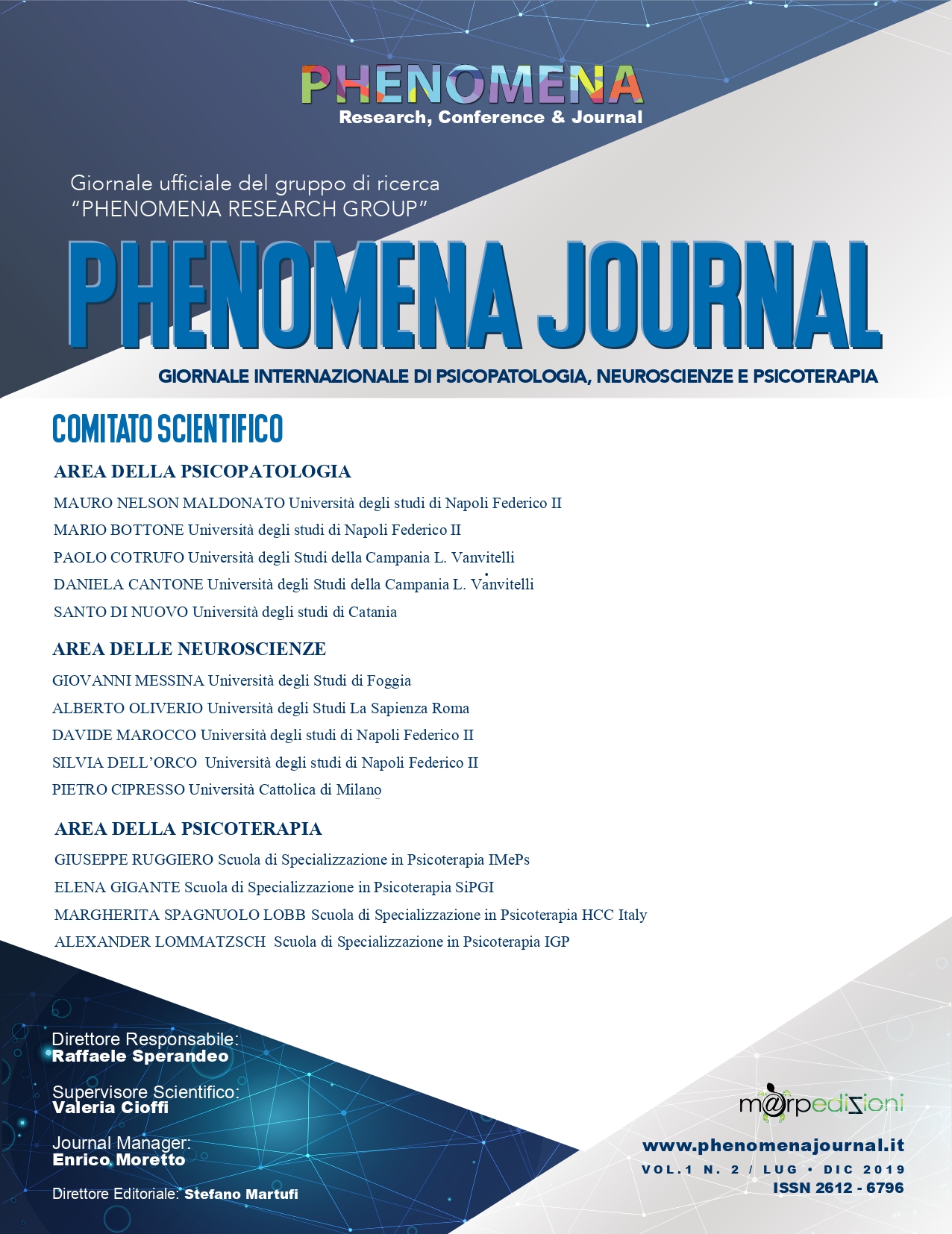Published 2019-10-16
How to Cite
Abstract
According to an actual epistemology it is possible to do a scientific work starting from a direct perspective so that, even if the objective approach has been considered as synonymous of scientifically correct, the “subjective” approach will be necessarily based on the direct observation of the experience itself. The phenomenological approach considers emotion as a peculiar consciousness phenomenon different from pure thinking: it aims to establish emotion comprehension on objective basis. Emotion is not an idea or a thought, it is the very inception and it has pre-rational nature.The phenomenological approach becomes an essential condition for a scientific method of analysis. One of the main principles of the Gestalt Theory is that the Self “gets to-gether” when it becomes a whole form together with the world thus the phenomenological approach becomes the true and natural technique to get a scientific knowledge of perception, or the way the Self enters in contact with the world. The Gestalt-therapy is based on: consciousness development, experimental approach, to work here and now, the phenomenological practice, to work with incarnation. This methodological approach of the Gestalt-therapy arises from the purpose to integrate all emotional experience perceived by the subject, connecting perception with thinking and therefore with feelings. The objective is to shape the phenomenological research on the gestalt principles and on an integrated methodology. The focus was especially brought on the subjective description of anger as emotional experience, distinguishing five prototypes: Explosive Anger, Underestimating Anger, Manipulative Anger, Daring Anger and Refusal Anger.

